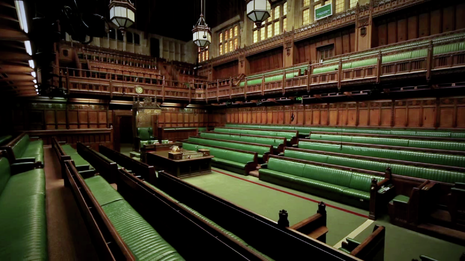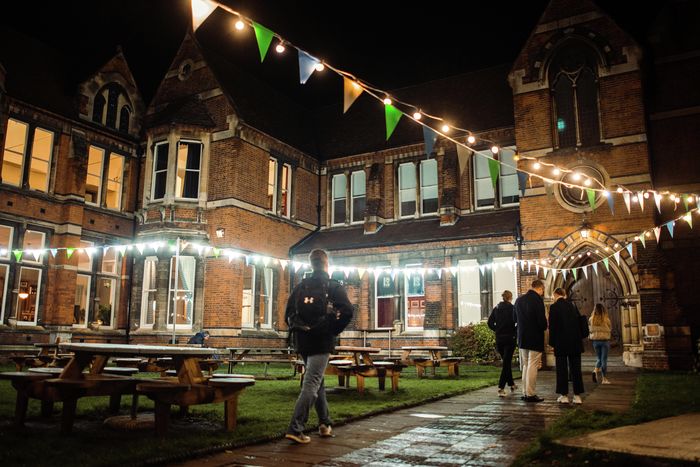Where is the humanity in our politics?
Jasper Finlay Burnside argues that the response to Rachel Reeves’s tears in the House of Commons highlights disconcerting characteristics of modern-day politics

Last Thursday morning, it was impossible to miss the headlines accompanied by pictures of the Chancellor crying in the House of Commons. While it is doubtless disconcerting to see someone distressed, this sensationalism proves that we have lost humanity in politics. For the past few decades, the chief complaint against politicians has been that they are inauthentic, robotic, or, more recently, deceitful and dishonest. Yet, as public discourse has become increasingly vitriolic, our ability to see oppositions as more than their arguments – as human beings – has been lost.
Part of the reason why our politics has become so tainted is because of the ubiquitous nature of the internet and social media in our daily lives, empowering keyboard warriors to argue, or, more accurately, shout at anyone with assumed anonymity from behind their computer screen. Forgetting one’s humanity as the cost of argument is to fail to understand and to listen. Anyone who has ever debated understands that the key part is listening. Even more critically, it is to understand where an opponent’s ideas come from. To engage in debate requires humanity, compassion, and the ability to engage not just with the argument, but also with the person facing us.
“Politics is adversarial, but it should be about people”
Of course, I am not arguing that corridors of power should be tear-sodden. However, there has to be a space to see politicians as human, and more generally, to allow them to be human. Through all of the reporting on the Chancellor crying, phrases in the vein of “politicians are human too” continued to be rolled out. This is, of course, obvious to the point of vanity. And yet, it was presented as a sort of eureka moment, where a toxic vulturine press realised that ad hominem attacks have consequences beyond the potential of an IPSO complaint.
More importantly, our politics require humanity. It is necessary to steer public discourse back onto productive and compassionate grounds. Politics is adversarial, but it should be about people. It doesn’t mean that we collectively need to agree, but rather that we can understand each other and how our opinions were formed without vilifying our opponents for their opinions. The fact that we are even in a position where the media has to remind us of something so blatantly obvious is shameful. It exposes the perilous political position in which we find ourselves.
“To see individuals as arguments makes debate hollow”
To be sure, there are barriers to more human politics. Last week’s reporting carried more than a hefty dash of sexism, and doubtless some will see it as a demonstration that women cannot hold high office. This whole circus, however, stems from the fact that we impose impossible standards on our elected leaders. They are to be efficient, but not cold; strong, yet empathetic; intelligent, yet not condescending. We need to adjust our expectations. While power should be a burden, it should be wielded by humans, not by the robotic creations we demand, only to lament. This standard doesn’t just damage women, but also diminishes male politicians into imitations of high masculinity – gaudy parades, which can be seen from Washington to Canberra. Politics, to some extent, mirror society, and the demands placed upon men and women to fit a specific role permeate into political life.
To see individuals as what they argue makes debate hollow. We live in a hyper-political age, where, once again, everything has become disagreeable. The inability to see the human on the other side has led to policies and debates that are fundamentally detached from the human experience, which in turn builds impenetrable walls around opinions.
The real danger is that we become unable to create just policy. That’s not to say that everyone can, or even should, win. But it should be more than just technocratic; it is something which engages with the people it affects. Policies must be more than just decisions; they must also consider the consequences and the people they may affect. Policy is personal; pretending otherwise is not just cold, it is dangerous.
To be in politics requires a kind of bravery and heroism. Even more so, it involves humanity and the ability to be more complex than merely imitating a gender stereotype or being afraid to show emotion. It needs a human hero, someone imperfect, but who can engage in debate, not for the sake of argument, but to seek a deeper understanding of the issues and the people they are trying to convince. What I am arguing is not that politicians need to be perfect, but precisely the opposite. They need to be human, not as an excuse for their frailties, but as a prerequisite for a sane and compassionate public debate and policy. Whether it is the Chancellor shedding a tear or the person sitting across from us in a debate, for the sake of democracy and for the sake of all of us, we need humanity in politics.
 News / Colleges charge different rents for the same Castle Street accommodation2 March 2026
News / Colleges charge different rents for the same Castle Street accommodation2 March 2026 News / News in Brief: waterworks, wine woes, and workplace wins 1 March 2026
News / News in Brief: waterworks, wine woes, and workplace wins 1 March 2026 News / Climate activists protest for ‘ethical careers policy’1 March 2026
News / Climate activists protest for ‘ethical careers policy’1 March 2026 News / Angela Merkel among Cambridge honorary degree nominees27 February 2026
News / Angela Merkel among Cambridge honorary degree nominees27 February 2026 News / Private school teacher who lied about Cambridge degree barred from teaching27 February 2026
News / Private school teacher who lied about Cambridge degree barred from teaching27 February 2026









